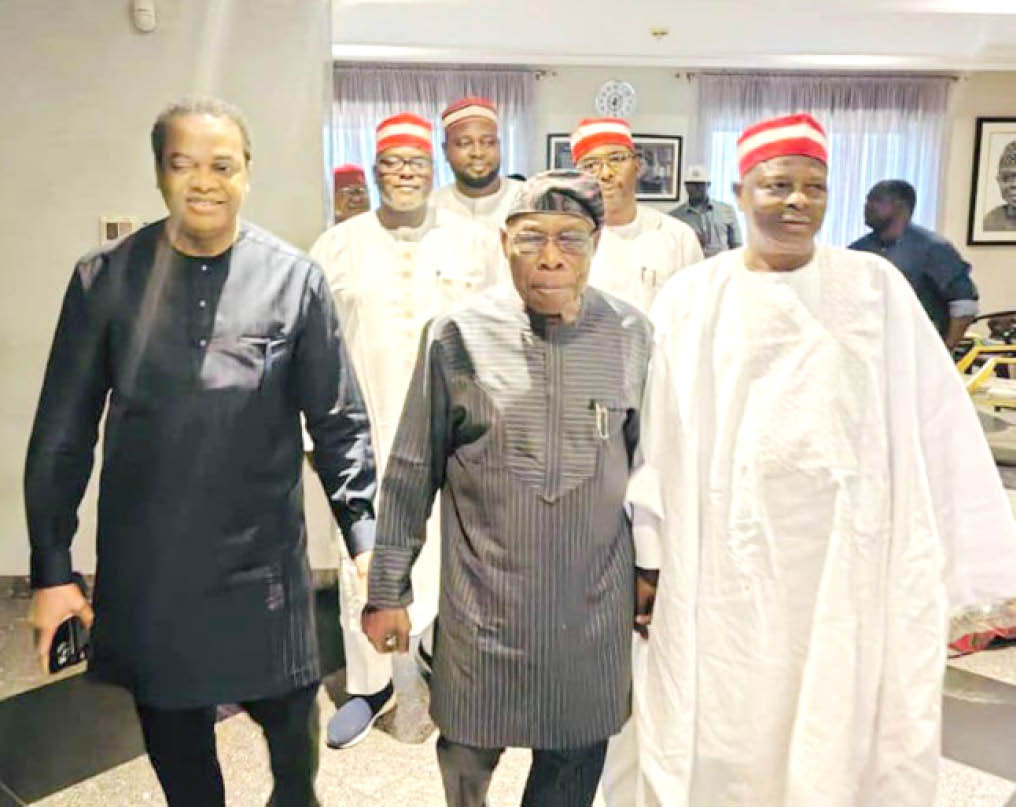Nigeria’s political landscape is heating up following a clandestine meeting between former President Olusegun Obasanjo, ex-presidential candidate Rabiu Kwankwaso, and former Cross River governor Donald Duke, prompting a dismissive response from the ruling All Progressives Congress (APC). The weekend gathering in Abeokuta has sparked speculation about potential opposition alignment ahead of the 2027 elections.
The APC’s response, delivered through National Publicity Director Bala Ibrahim, was notably contemptuous, characterizing President Tinubu’s political stature as being “head and shoulders above” the meeting’s participants. Ibrahim particularly emphasized the recent electoral defeats of these political figures, referring to them as “spent forces” whose combined influence poses no threat to the ruling party.
Kwankwaso confirmed the meeting via Facebook, describing “deliberations on significant national issues” and discussions about Nigeria’s political future. While specific details remain undisclosed, the gathering’s timing and participants suggest early positioning for the next electoral cycle.
The meeting gains additional significance given Obasanjo’s recent vocal criticism of the Tinubu administration, particularly regarding alleged corruption and mounting national debt. The former president’s engagement with various stakeholders signals his continued efforts to forge alternatives to both the ruling APC and the main opposition Peoples Democratic Party.
Ibrahim’s dismissive stance referenced historical precedents, pointing to Obasanjo’s previous unsuccessful political endorsements, including support for former President Goodluck Jonathan and Peter Obi’s recent presidential bid. Remember, he supported Jonathan, who later lost to Buhari. Obasanjo supported another candidate, Peter Obi, in the last election again and Tinubu trounced them,” Ibrahim stated.
The gathering brought together significant political figures with diverse regional influences. Kwankwaso maintains substantial following in Kano State, while Duke represents southern interests, potentially forming the foundation for a broader coalition. However, the APC maintains that such combinations have historically proven ineffective against their party’s electoral machinery.
Ibrahim’s comparison of contemporary politics to historical precedents suggests the ruling party’s confidence in its position, despite growing criticism of the current administration’s policies. The APC spokesman’s reference to previous electoral victories appears aimed at diminishing the significance of opposition movements forming nearly three years before the next general election.
The meeting’s timing, occurring amid mounting economic challenges and public discourse about national leadership, adds another layer to Nigeria’s evolving political narrative. While the APC projects confidence, the early alignment of opposition figures suggests recognition of the need for extended preparation to challenge the ruling party’s dominance.
As political maneuvering for 2027 begins taking shape, the contrasting perspectives between the ruling party and opposition figures highlight the complex dynamics of Nigerian politics. While the APC dismisses these early movements, the meeting’s participants appear committed to exploring alternatives to the current political structure, setting the stage for potential shifts in the national political landscape.



